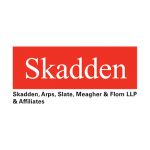International transactions are typically subject to multiple merger control filing obligations. On last count, there appear to be over 130 jurisdictions with mandatory or voluntary pre- or post-closing filing regimes, many of which impose a bar on closing globally or at least domestically until clearance is received. Merger enforcement has been increasingly active globally and competition authorities continue to cooperate closely in international transactions, where they often coordinate their substantive assessment and review process to some degree.
Parties to a transaction and their advisors are therefore required to closely manage the merger control process and ensure that the timetable for clearance corresponds with the overall deal timing.
United States
Over the past year, US merger enforcement has remained active despite speculation that the new Trump administration would take a less interventionist approach to antitrust policy than the Obama administration. Under Obama, US antitrust officials challenged a number of high-profile transactions, focusing primarily on horizontal mergers involving close competitors and high barriers to entry, particularly where the customers of the merging parties had specialised needs. For example, the government blocked Sysco/US Foods on the basis that it would combine the only two broadline foodservice distributors equipped to serve large national customers. Similarly, Staples/Office Depot was challenged on the theory that the merger would reduce competition in the sale and distribution of consumable office supplies to large business customers.
Despite historical patterns suggesting that Republican administrations skew towards a more conservative approach to mergers, there are signals suggesting the US antitrust authorities will continue their pattern of aggressive enforcement under the Trump administration, at least in the short term. US regulators recently challenged AT&T/Time Warner, despite the fact that the government has not attempted to block a vertical merger in decades. And though challenges to transactions that have received HSR (Hart–Scott–Rodino Antitrust Improvements Act) clearance are rare, US enforcers also sued to unwind Parker-Hannifin's acquisition of Clarcor, a deal that previously received clearance after HSR review. Both actions suggest that the Trump administration is unlikely to be lax in its merger enforcement.
European Union
The EU Commission also continued its active merger enforcement policy in 2017. The EU Commission has been pursuing more aggressive theories of harm including in relation to non-horizontal, i.e. vertical or conglomerate mergers (eg Qualcomm/NXP Semiconductors, Luxottica/Essilor and Bayer/Monsanto) or innovation, where in its decision on the Dow/DuPont merger, the Commission pursued what many commentators consider a novel and speculative theory of harm involving research and development efforts. The EU Commission has also shown an increased focus on the effectiveness of merger remedies, and has continued to aggressively enforce procedural violations, including gun-jumping and the provision of misleading information in the context of merger proceedings (eg the Commission fined Facebook €110 million ($132 million) for providing the Commission with misleading information in the context of the merger review of its WhatsApp takeover).
The EU Commission has launched a public consultation that sought feedback on the effectiveness of purely turnover-based thresholds in the EU Merger Regulation, the treatment of cases that typically do not raise competition concerns, and the referral mechanisms involving Member States and is presently considering stakeholder responses on these issues but has not yet taken a position.
China
China has become a major jurisdiction for merger review in international transactions. Timing has always been an important consideration in relation to the Chinese merger control process, and aligning the Chinese process with that of other jurisdictions has remained a challenge in international transactions. Under the ordinary procedure, the Anti-Monopoly Bureau of the Ministry of Commerce's (MOFCOM) review routinely takes three to five months from acceptance, even in cases with no competition issues. For cases with serious concerns, the review can take more than a year. However, the simplified merger review introduced by MOFCOM three years ago has been a success and reduced clearance times for many transactions that do not pose significant competitive or industrial policy concerns in China. Under the simplified procedure, the review period after formal acceptance averages less than 30 calendar days.
Nevertheless, given Mofcom's rigorous vetting process for the simplified procedure, parties seeking to benefit from the simplified procedure should anticipate Mofcom's scrutiny and prepare a robust competitive analysis. While the simplified procedure has streamlined and expedited MOFCOM's assessment of more straightforward transactions, it still carries significant uncertainty as a result of MOFCOM's discretion.
Rest of world
The list of jurisdictions with mandatory pre-closing requirements has continued to grow also in 2017.
Chile introduced a mandatory pre-closing filing obligation to the Fiscalía Nacional Económica effective June 1 2017, including a post-closing reporting obligation for certain minority investments.
In Thailand, a new law effective October 5 2017 introduced mandatory pre- and post-closing filing obligations to the Trade Competition Commission.
Also in 2017, the Competition Commission of the Philippines issued guidelines on merger procedure supplementing the new mandatory pre-closing regime that became effective June 2016.
The Chilean and Philippine authorities have already been very active and became involved in major international transactions.
New merger control legislation is pending in a number of other jurisdictions, including in Argentina where a draft bill, introducing a mandatory pre-closing filing requirement with a bar on closing, is scheduled to enter into force by early 2018.
In addition, jurisdictions with existing merger control regimes, most notably Germany and Austria, amended their already low filing thresholds in 2017 by introducing an alternative transaction size threshold that – while targeted at transactions in the digital and pharmaceutical industry – technically apply to all transactions meeting the new thresholds. Other antitrust authorities, such as CADE in Brazil and COFECE in Mexico, have continued their aggressive merger enforcement and routinely cooperate very closely with other authorities, in particular in the US and the EU.
About the author |
||

|
|
Maria A Raptis Partner, Skadden Arps Slate Meagher & Flom New York, US T: +1 212 735 2425 W: www.skadden.com/professionals/r/raptis-maria Maria Raptis is a partner in Skadden's New York antitrust group. She represents clients in connection with the antitrust aspects of litigation, mergers and acquisitions, counselling and criminal matters. Raptis has represented clients before the Federal Trade Commission and US Department of Justice in merger clearance issues for a wide variety of industries; in litigation, which includes defending companies in suits brought by the FTC and private plaintiffs relating to 'reverse payment' settlements; and has also has represented clients in connection with allegations of price-fixing or other criminal charges. |
About the author |
||

|
|
Thorsten Goetz European counsel, Skadden Arps Slate Meagher & Flom Frankfurt, Germany / Brussels, Belgium T: +49 69 74220 167 / +32 2 639 0300 W: www.skadden.com/professionals/g/goetz-thorsten-c Thorsten Goetz is a European counsel dividing his time between Skadden's Frankfurt and Brussels offices. He has wide-ranging experience in European Union and international merger control cases, as well as cartel enforcement and abuse of dominance matters. Goetz advises clients on antitrust aspects of complex cross-border M&A and joint-ventures in a broad range of industries, including agriculture, chemicals, pharmaceutical/life sciences, financial services, energy, travel and telecommunications, among others. Goetz has worked on numerous transactions requiring international antitrust merger control approvals both in Europe and on a worldwide basis. He also advises clients in cartel cases, as well as competition law issues relating to vertical agreements and dominance. He has represented clients in Article 101 investigations in relation to cartels, strategic alliances, distribution arrangements and other vertical agreements, as well as in Article 102 investigations, both before the European Commission, the European Courts and national competition authorities. |
